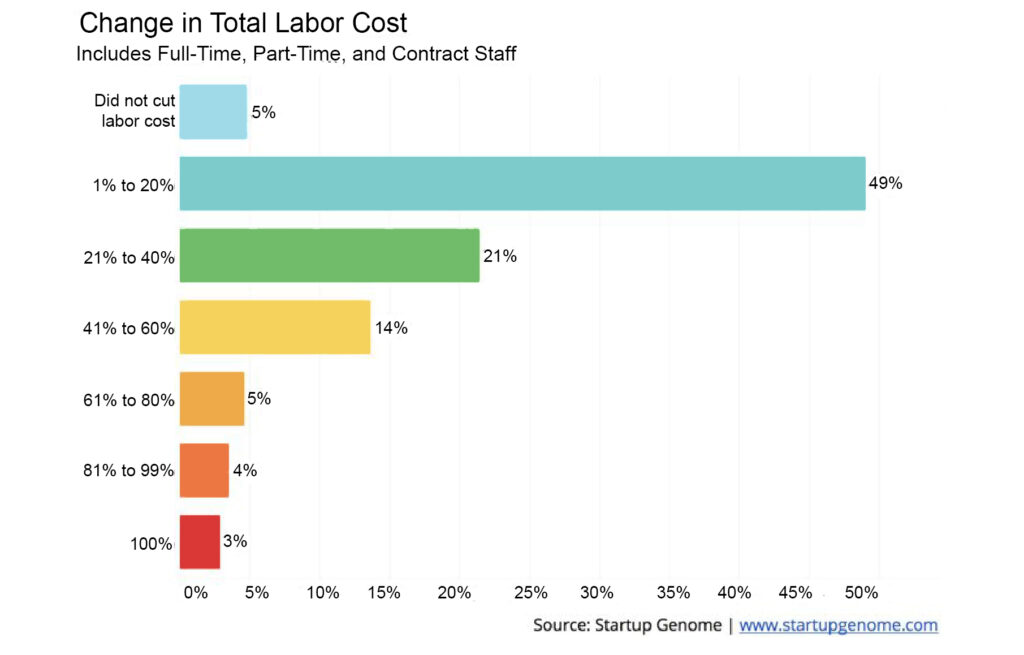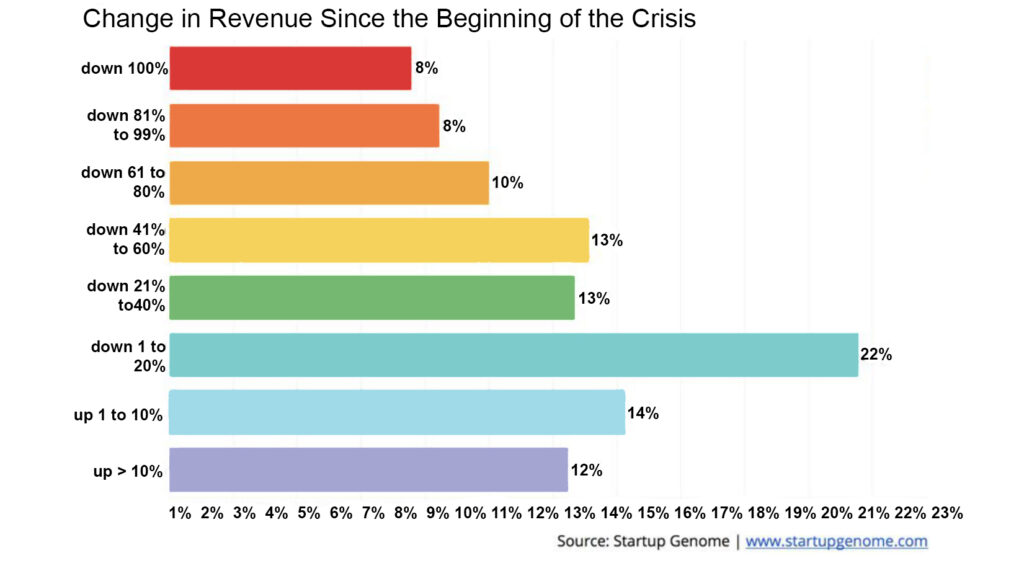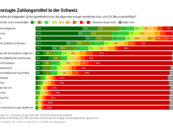
Impact of COVID-19 Crisis: Insights From Global Startup Survey
by Company Announcement April 24, 2020To better understand the impact of the COVID-19 crisis on startups globally and equip governments with tools and actionable insights to support their innovation ecosystems, Startup Genome launched a global startup survey on the topic.
Key findings from this initial analysis are:
Capital
- 41% of startups globally are threatened in what we call “red zone”: they have three months or less of cash runway left. Many very young startups live with only a few months in cash—29% were in that situation already before the crisis—but the crisis put 40% more of them in that precarious position. Focusing on startups that have raised Series A, B, or later rounds, 34% have less than 6 months worth of cash — a danger zone in the current situation where fundraising is difficult.
- Of startups that had a term sheet before the onset of the crisis, nearly 20% have had the term sheet pulled by the investor, and 53% have seen the process slow down significantly or have faced an unresponsive lead investor. Only 28% have either had the process continue normally or secured the funds.
Talent and Jobs

- Since the beginning of the crisis 74% of startups have had to terminate full-time employees. 39% of all startups had to lay off 20% or more of their staff, and 26% had to let go 60% of employees or more. When we break down the share of startups that had to terminate full-time employees by the top three continents for startup activity, North America is the place with the biggest share of companies reducing headcount (84%), followed by Europe (67%) and Asia (59%).
Market

- 74% of startups saw their revenues decline since the beginning of the crisis. The most common type of change in revenue is a relatively modest decline. However, a sizable share of companies were very heavily hit: 16% of startups saw their revenue drop by more than 80%. A major reason for the drops in revenue come from the effect of the crisis on industries those startups serve. Three out of every four startups work in industries severely affected by the COVID-19 crisis.
- At the same time, a small minority of companies are actually experiencing growth. 12% of startups have seen their revenue increase by 10 percent or more since the beginning of the crisis, and one out of every 10 startups are in industries actually experiencing growth. Every crisis creates opportunities. For instance, over half of Fortune 500 companies started during a contraction, and over 50 unicorns were created in the Great Recession alone, as Startup Genome data shows. The COVID-19 crisis is no exception.
- The hurt and the growth are not evenly distributed. On the positive side, B2C startups are about three times more likely to be in industries experiencing growth in the face of the COVID-19 crisis when compared to B2B startups. On the negative side, B2B startups serving Large Enterprise clients are more likely to be in industries adversely affected by the crisis than both B2B startups serving Small and Medium Enterprises and B2C startups; and are the least likely to be experiencing an increase in sales.
Operations and Management
- Over two thirds of startups have reduced their expenses since December 2019, with the lion’s share of those doing relatively small cuts. Some companies, however, cut costs very aggressively, with more than one out of every 10 companies cutting costs by over 60%. Out of those startups cutting costs, 76% started doing it since the beginning of March—indicating most of the cost-cutting is directly related to the COVID-19 crisis.
- Nonetheless, tech startups are uniquely situated to continue operating even in lockdown scenarios. Unlike many traditional businesses, 96% of startups responded that they have continued working during the crisis, even if there is significant disruption.
Policy
- 38% of startups have not received assistance and do not expect to be helped by policy relief measures related to the crisis. At the same time, 16% are not currently supported but expect to be helped by a policy measure soon. The remaining 46% of startups are currently receiving assistance.
- According to founders and startup executives, the top four most helpful policy responses for their businesses would be, in order: #1 Grants to preserve company liquidity (29%); #2 Instruments to boost investment (18%); #3 Support to protect employees, like payroll supplementation grants (17%); and #4 Loans to preserve company liquidity (12%).
Featured image credit: Unsplash





